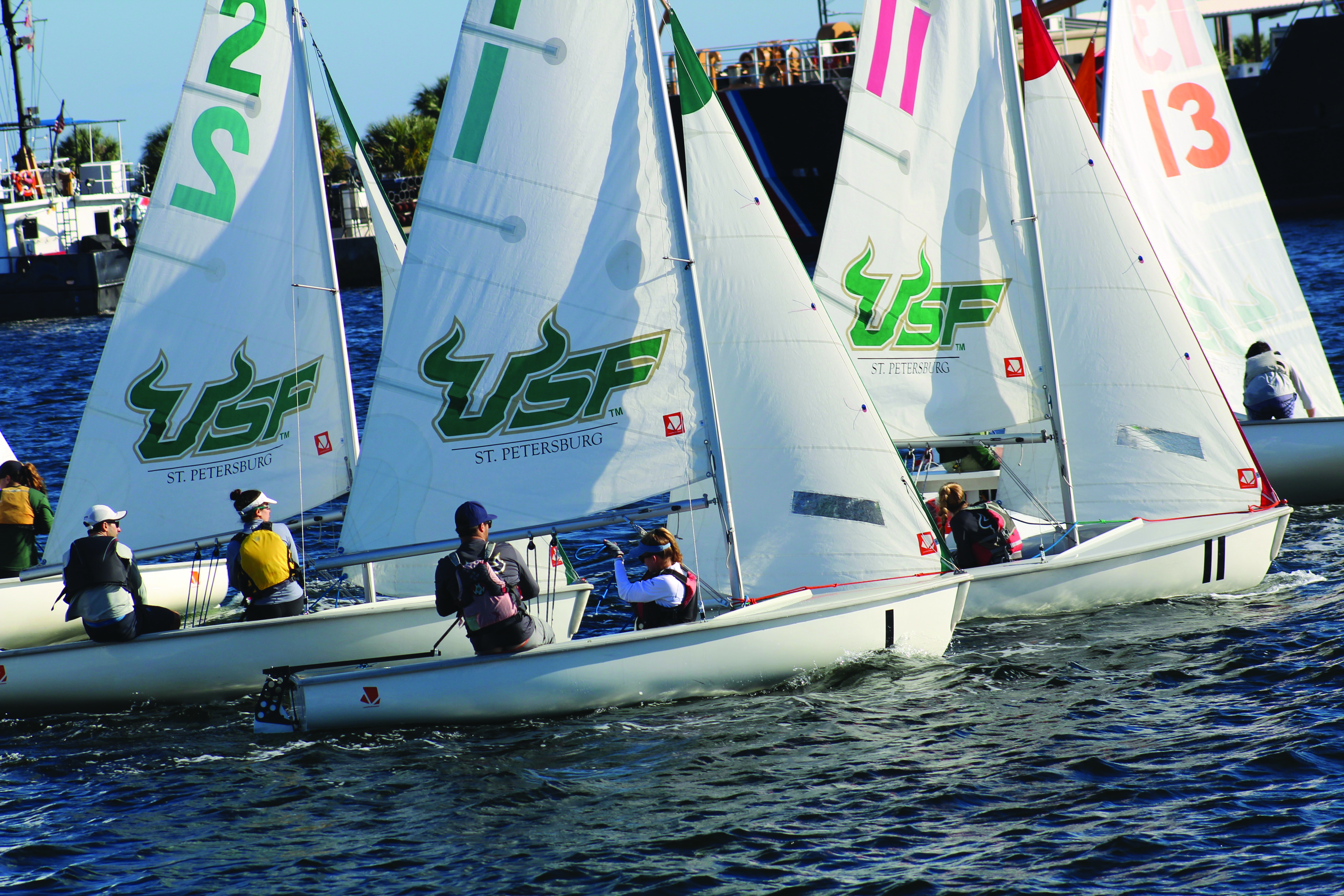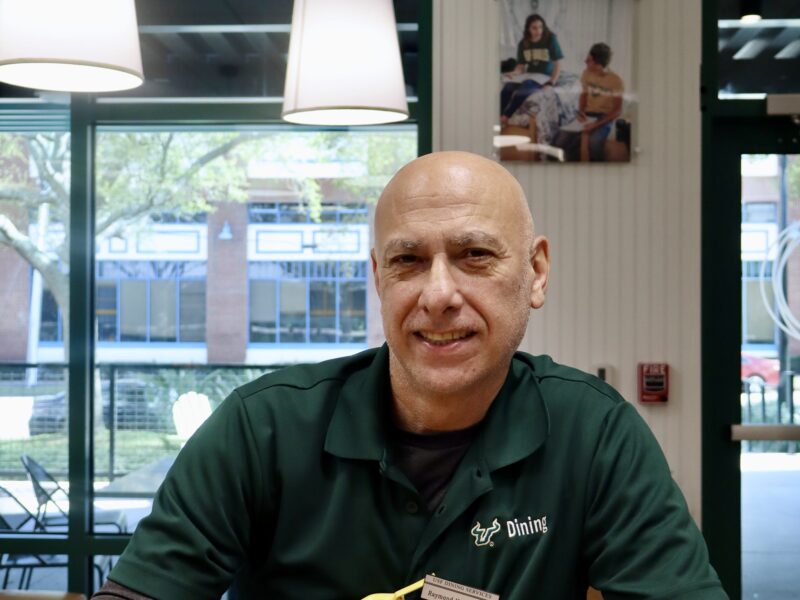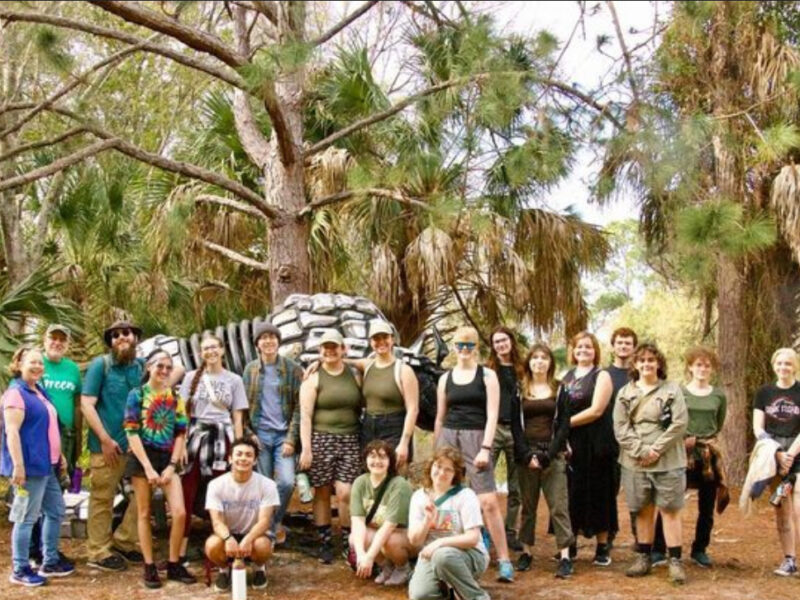Sitting in class, Andrew “Ty” Baird listened to another student complain about the lack of competitive sports on campus.
Baird sighed and lifted his USF sailing backpack, but didn’t say a word. It’s a comment he’s heard too many times.
“We’re literally out there all the time,” Baird said. “I mean, have you been on the waterfront?”
The USF St. Petersburg sailing teams, varsity and co-ed, often get overlooked. In November, the co-ed team won first place in the Kennedy Cup Intercollegiate Sailing Association competition, where the eight-man team beat the U.S. Naval Academy at their home in Annapolis, Maryland.
The victory allowed USFSP to advance to the 37th annual Student Yachting World Cup, which will be held in France in the fall.
Baird, a junior business major, grew up in St. Petersburg, his father is a professional sailor and his mother is a world champion.
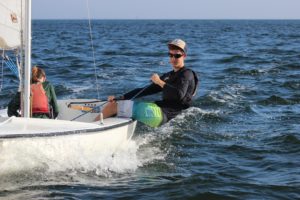
He spent his freshman year at Old Dominion University in Virginia, but returned to escape the cold weather.
Even with the team’s recent success, Baird doesn’t expect the popularity of the sport on campus to change.
“[Sailing] isn’t a spectator-friendly sport and it’s super complex,” Baird said. “It would be cool to have people sit out there and watch but nobody would have any idea what’s going on.”
The co-ed team coach, Alan Capellin, explained that there are a number of variables in sailing that can’t be seen, like wind condition, equipment malfunctions and tides.
“The team is dealing with something you don’t see and the conditions are constantly changing,” said Capellin.
Along with coach Allison Jolly, an olympic gold medalist who’s coached the teams for over a decade, Capellin trains the sailors three days a week. He was confident in the sailors abilities going into the Kennedy Cup.
“I think it’s been a long time coming, now that we’re able to travel and get their name out there,” Capellin said.
The team practices to not only become better sailors, but Capellin said they are also learning life skills that will help them in the future.
“It’s a healthy distraction,” Capellin said. “They’re learning time management and we’re trying to help them with that.”
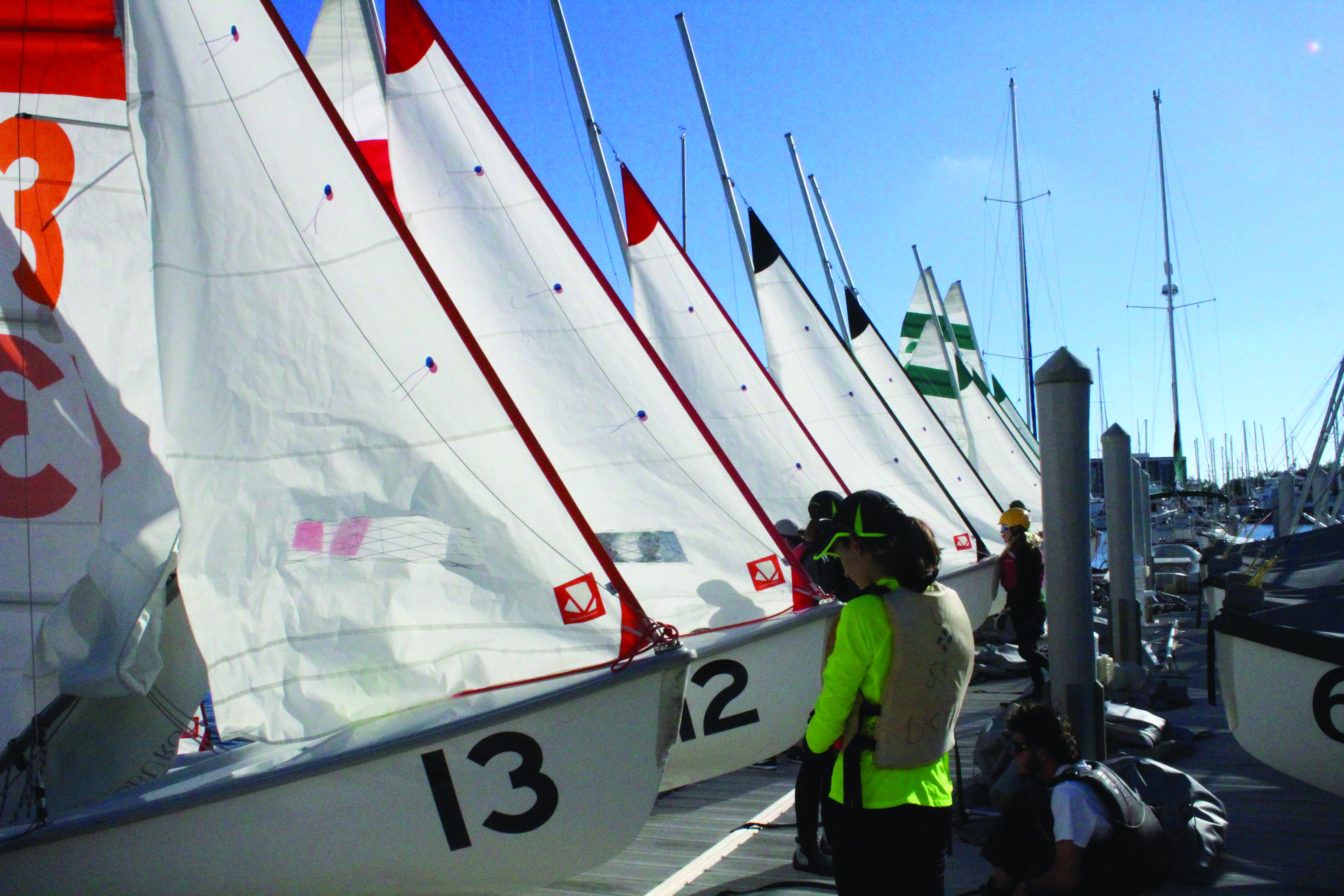
The team segments out time in their week for practices, which could take over three hours per day. They also maintain school work while travelling for regattas, which are boating competitions, that may take up to a week including travel time. For the Kennedy Cup, the team members were out of town for four days.
On the day of the race, the team boarded the boat. The weather outside was cold, dreary and fraught with wind. Baird said that any normal person would have gone inside, but the team was happy with the conditions.
Eight members raced for the cup on a boat called the Navy 44, a boat unique to the Naval Academy that the team doesn’t normally practice with. When traveling they sometimes get introduced to the boat the day of their competition.
On the day of the race, the weather outside was cold, dreary and fraught with wind. Baird said that any normal person would have went inside, but the sailors were happy with the conditions.
Eight sailors on the team boarded a boat called the Navy 44, it was unique to the Naval Academy and a boat the team doesn’t normally practice with. They are used to sailing with two-man dinghies or five-man boats. The crew seemed to adapt well.
“Everyone was surprised that we didn’t practice on that kind of boat, just the five people ones they have here,” said Baird.
Orrin Starr, a junior business major on the team, was in the boat that day. He said that after they finished the race, a captain of the Navy team approached them to say congratulations.
The crew asked the Navy captain who had won the match, surprised he informed them that they were the winners.
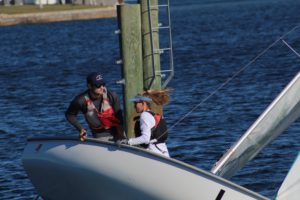
“We pretty much erupted in celebration when he told us,” said Starr, a 20 year-old transfer student from USF Tampa.
Starr said that sailing is a game of limiting mistakes, and involves team coordination and trust.
“We have a lot of capable sailors on the team. It’s a very intuitive sport, you need to be able to recognize a problem and fix it automatically,” said Starr.
Starr is from a small island off the coast of Rhode Island. He’s been sailing since childhood and feels that it’s his passion. Starr prefers sailing in the larger offshore competitions, compared to the two man dinghy boats.
The next few months are going to be intense for the team. According to Starr they will be working hard and will not have a free weekend until August. Each week they’ll be practicing or participating in competitions.
They have regattas in Charleston, South Carolina; Los Angeles, California; and then Paris, France in November.

